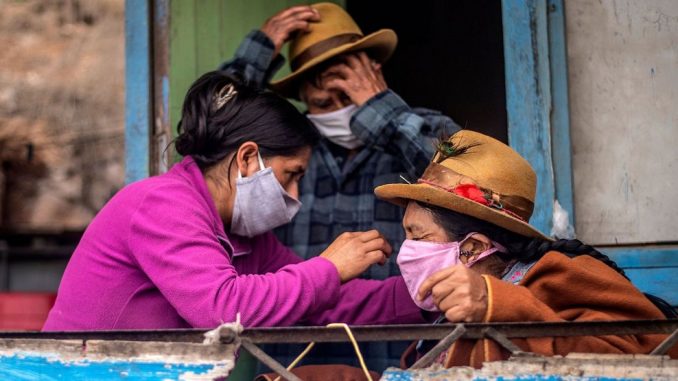
By Alberto Giovanelli
As we have already reported, Peru is going through a strong political crisis, with a transitional government that was instituted after the fall of two presidents in the span of one week in mid-November. On top of this, there is the health crisis exacerbated by the arrival of the “second wave” of Covid 19 and an accelerated deterioration of the already critical and weak economy of Andean countries, which provokes protests from different sectors: agricultural workers against laws inherited from Fujimori, even health care workers, tired of being on the front line without adequate equipment, supplies or fair remuneration.
Peru has been one of the global epicenters of the pandemic and the Latin American country with the worst data: its death rate from coronavirus is the highest in the region in relation to its population.
Now, while waiting for the arrival of the first vaccines from the Chinese laboratory Sinopharm, scheduled for the end of January, we are in the initial stage of the second wave of SARS-CoV-2 infections, which already has over 1,078. 675 confirmed cases and about 39,160 deaths, according to official figures recorded at the end of the third week of the current month of January.
The health drama and the economic disaster have left millions of families in a serious situation and without resources to face it.
Meanwhile, the Medical College of Peru (CMP) has warned this last Sunday, January 24, that the new wave of coronavirus that hits the country “has devastated the health system” and “is almost uncontrollable.”
Professionals who have made known to the Government the difficult situation facing the Peruvian health system stand out. The situation “is on the verge of becoming uncontrollable,” they affirm.
In that sense, they criticized the “clear weakness” shown by the current government and the Ministry of Health, whose measures to face the advance of the pandemic have been “lukewarm and timid.”
They also defended the need to “put human life before the economy,” and have proposed imposing targeted quarantines in those districts with the highest incidence of the pandemic.
In addition, about a dozen doctors from the national social security union have been protesting in front of the Peruvian Ministry of Labor, where they began a hunger strike last Tuesday. They demand more investment in the health sector and reject the government´s handling of the pandemic, according to a statement from the National Medical Union of Social Security of Peru (SINAMMSOP).
These expressions come on top of numerous protests in different parts of the country. Doctors and other health workers are demanding more medical equipment, salary adjustments and an “increase in the budget for the health sector.” They affirm: “Our ICUs are collapsing and we are not receiving any response and we are seeing the indifference of a government that allocates the budget to us. The Peruvian State has a constitutional obligation to guarantee the accessibility of health services and right now they are denying access to hospitals because we no longer have the capacity to provide patients with what they so badly need.”
These are the reasons why a significant increase in the budget for the health sector is urgently needed. The austerity imposed on the sector must be stopped now. Let us demand that all the necessary resources be used to improve public hospitals, laboratories, ICU beds, and everything necessary to be able to provide a truly essential service.
As we have repeatedly denounced, during the previous phase of the pandemic, that is, during the first wave, tests were insufficient and of very poor quality. For that reason, today it is urgent to implement a massive free molecular testing campaign that reaches the entire population.
Increasing salaries, the appointment of new professionals and an analysis of the infrastructure by the workers will also be essential, and for this we must suspend the payment of the public debt and apply heavy taxes on wealth to obtain the resources that allow us to implement these tasks.








